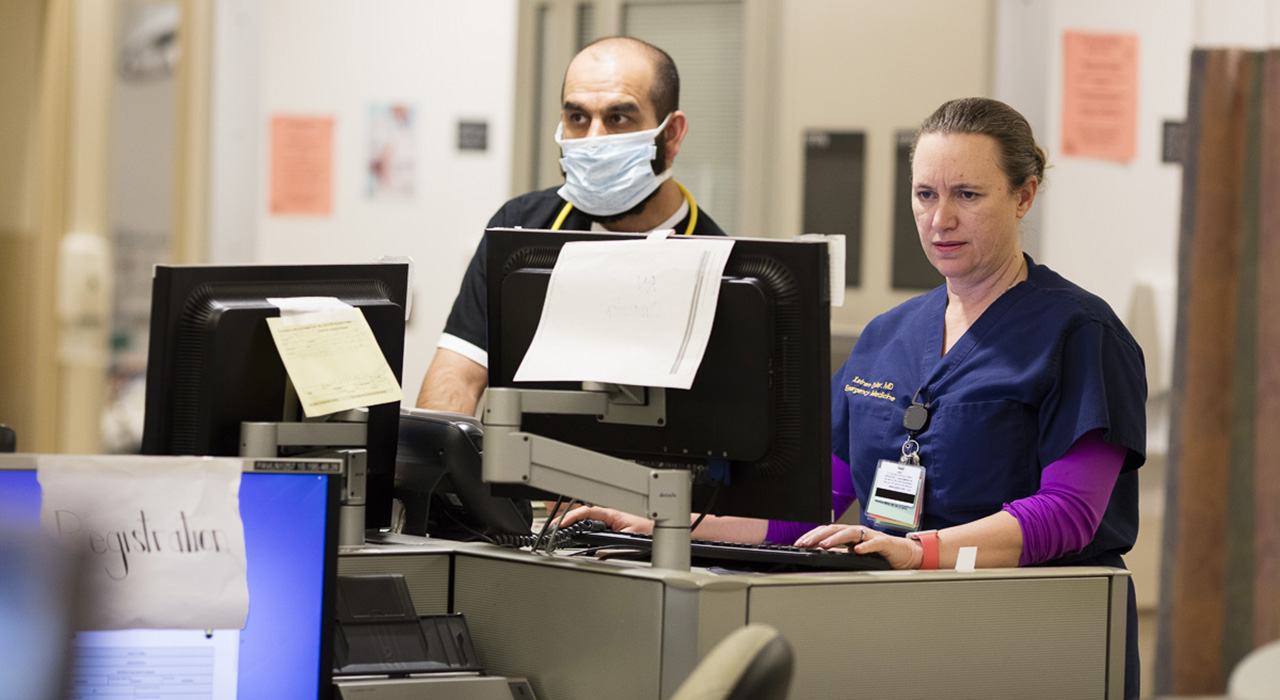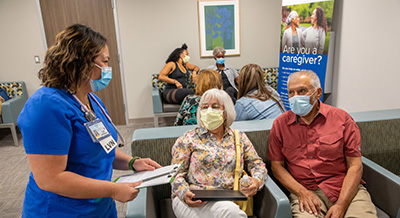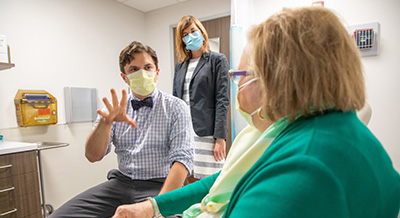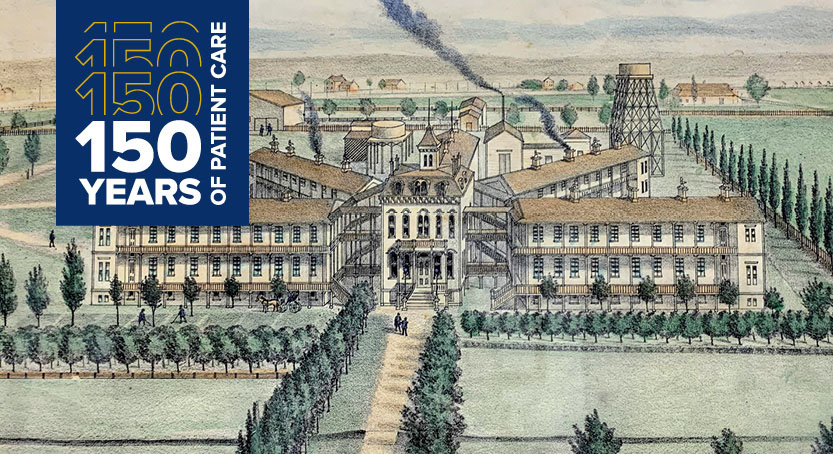Older adults arrive at the emergency department (ED) with complicated needs that may not be addressed by standard triage protocols. They often present with cognitive impairment, multiple chronic conditions and pain that’s difficult to assess.
Developing age-friendly care within the ED is part of the vision of UC Davis Health’s Healthy Aging Initiative, so UC Davis Medical Center’s ED team has gone about increasing its expertise — both human and technological — concerning the older adult population.
“Older adults present with complex medical and social issues, making them more challenging to diagnose and discharge,” said Katren Tyler, M.D., senior emergency care unit physician-lead at UC Davis Medical Center, and a leader of the health system’s age-friendly work. “With a continuing increase of people over the age of 65 in the ED, we must change how we approach these patients upon arrival, so that we can improve their experiences, streamline the discharge process and eliminate unnecessary hospitalizations.”
Her team now includes two Geriatric Emergency Nurse Initiative Expert (GENIE) registered nurses to target geriatric assessment and streamline care. UC Davis Health physicians and nurses still focus on the acute cause of an ED visit, but GENIE nurses identify patients with geriatric-specific health needs and pinpoint areas for intervention — providing clinical screens focused on Age-Friendly Health Systems practices, for example, and coordinating closely with clinical case managers, social workers, physical therapists and transitions-of-care navigators.
Advanced practice providers with geriatric expertise also serve in clinical rotations in the ED as part of a new N.P. Residency Program at the Betty Irene Moore School of Nursing at UC Davis. “They bring specialized knowledge and skill in geriatrics, while learning about why these patients end up in the ED and ways to strengthen outpatient care to prevent avoidable hospitalizations in the future,” said residency program director Debra Bakerjian, Ph.D., A.P.R.N., F.A.A.N., F.A.A.N.P., F.G.S.A.
Geriatric emergency fellows are also an important part of meaningfully improving older adult care in the ED, said Tyler, who helps oversee them. Her program has two M.D.s this year, who evaluate older ED patients and rotate through other clinical areas such as palliative care, UC Davis-affiliated skilled nursing facilities, and the healthy aging clinic.
EPIC, the EHR software used at UC Davis Health, includes the GENIE screening protocol and an Identification of Seniors at Risk (ISAR) screening tool. Some other age-friendly advances in the ED include:
- A geriatric emergency management group to improve multidisciplinary care of older adult patients, including physical therapy, social work, case management, transitions of care, pharmacy, nursing and physicians
- Attention to skin care, mobility and comfort
- Emergent physical therapy evaluations to help patients prior to discharge, and mobility supplies
- Participation in the health system’s institution of a comprehensive fragility fracture program, adding to its well-established geriatric hip fracture program
- A geriatric pain panel and functional decline pathway in the ED Observation unit.
First-year goals include earning Level 1 Geriatric ED Accreditation from the American College of Emergency Physicians, with West Health Institute grant support.





